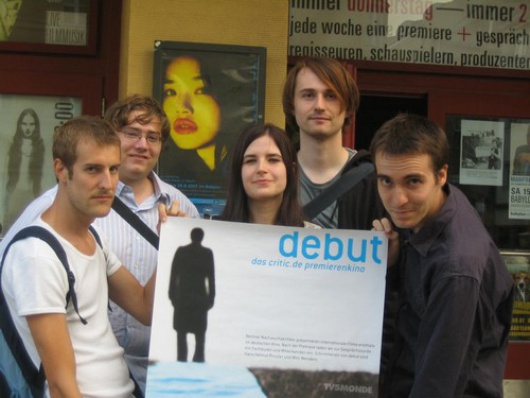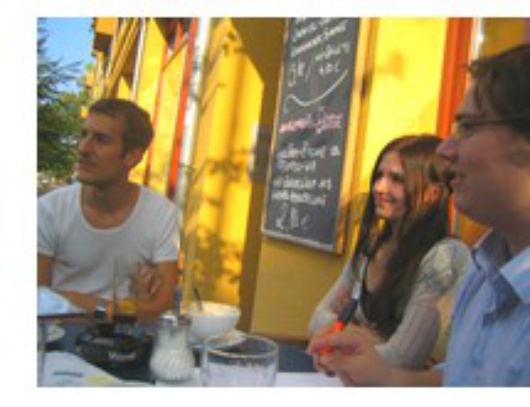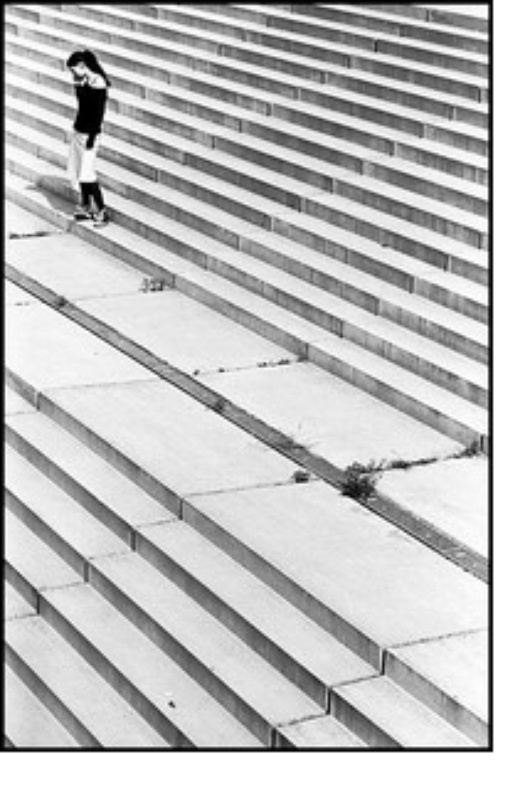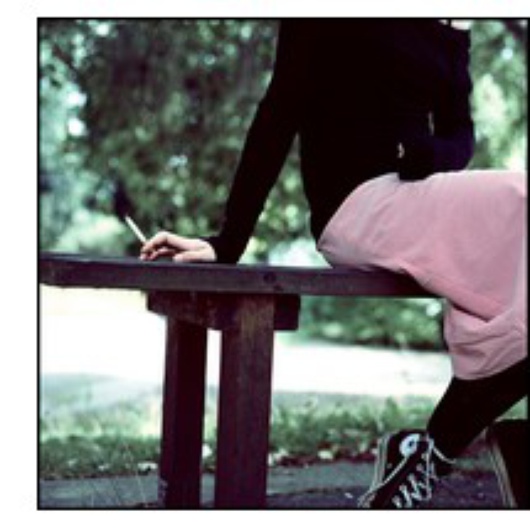'critic.de' – Berlin 'debut' for unknown films
Published on
Translation by:
Sarah GrayAt the Berlin Film Festival, students smitten with the seventh art showcase films overlooked by mainstream distributors. Screenings are followed by heated debate between film buffs, all with a very critical eye
 They are a group of twenty film and media students, fanatical about film, idealists with one mission: to get previously unknown films onto the big screen in the German capital. In 2006, the group launched the project on the fringes of a film review website: debut was born.
They are a group of twenty film and media students, fanatical about film, idealists with one mission: to get previously unknown films onto the big screen in the German capital. In 2006, the group launched the project on the fringes of a film review website: debut was born.
(Photo: RS)
'Critic.de' film critics network
'Critic.de' is where it all started. The site, which keeps the avid film fan up-to-date on new releases, the latest DVDs, classics to watch again and upcoming festivals, has already made a name for itself in Germany.
Frédéric Jaeger, its founder and editor, is also the man behind debut. ‘With 'critic.de' we wanted to give our readers something more than the traditional film reviews published in Germany. We don’t just discuss the plot and the actors but also, more importantly, the film as part of a wider picture, in its own social, historical and cinematographic context.’ Jaeger himself prefers to watch a film ‘cold’, unaware of any previous criticism which might colour his response to it. In order to make their selection for the first debut season, he and his collaborators watched more than 120 films, only four of which had already been shown to the general public.
Working in this way debut brings hard-to-find works directly to the Berlin audience. The last season included Les amants réguliers ('Regular Lovers', Philippe Garrel, 2005), the fascinating Flanders (Bruno Dumont, 2006) and The Soup One Morning (Izumi Takahashi, Japan, 2004).
But debut doesn’t want to host ‘superficial’ film screenings, as Jaeger underlines: ‘We want to give the audience time and space, and allow the films to do their work. After the screenings we organise discussions with film experts, members of the 'critic.de' team and, wherever possible, the filmmakers themselves.’
Jaeger is like a travelling sales rep in the world of film. And whilst he and his team sometimes discover rare gems, he admits they sat through just as many poor films which, with good reason, never made it to cinemas. Following a brief summer break, debut started its second season this September.
Big films, small budget
‘This project allows us to get an excellent overview of the current cinema scene,’ Hannes tells us. Originally from Switzerland, he now works in the 1920s ‘Babylon’ cinema, the venue for debut’s film screenings. ‘In truth there are no longer countries undiscovered by the world of cinema, which was perhaps not the case twenty years ago.’ Another colleague, Lukas, is looking to China, since the number of films produced there and their quality seems greatly improved in recent years. Their colleague Michael has for his part watched innumerable films made in eastern Europe. Many were mediocre to say the least, but some have now found distributors, most famously Cristian Mungiu's Romanian film ‘Four Months, Three Weeks And Two Days’, winner of the Palme d’Or at Cannes this year. But despite the progress made by other countries, says Jaeger, ‘France, with its long-established reputation, continues to dominate European cinema.’
In fact, half of the films accepted for the second season are French. How does the debut team make these choices? Why certain films and not others? The first stage is a brainstorming session in a Berlin café  , when the team look through a whole list of films. After the viewings, films are assessed according to a points system. The whole team then watch the final selection, and only after this can the real work begin: negotiations with distributors, promotion and production of film trailers. Above all the question of sponsorship must be tackled because, as Jaeger admits, ‘financial issues are still the biggest problem when organising film screenings.’
, when the team look through a whole list of films. After the viewings, films are assessed according to a points system. The whole team then watch the final selection, and only after this can the real work begin: negotiations with distributors, promotion and production of film trailers. Above all the question of sponsorship must be tackled because, as Jaeger admits, ‘financial issues are still the biggest problem when organising film screenings.’
Franziska Latell, one of the directors of the debut project, talks about cinema's potential - and limitations
What is special about the debut project?
 With the great variety of small festivals and film screenings which take place regularly in Berlin, debut seeks out the best films and offers not only screenings but also the chance to discuss them. These are often films from other countries, perhaps France or Japan, which would not otherwise be seen in Germany. Our aim is to allow these films to reach a new audience
With the great variety of small festivals and film screenings which take place regularly in Berlin, debut seeks out the best films and offers not only screenings but also the chance to discuss them. These are often films from other countries, perhaps France or Japan, which would not otherwise be seen in Germany. Our aim is to allow these films to reach a new audience
What are the main obstacles to this?
Rather than obstacles, we have a lot of opportunities. We are all volunteers and most of us are students, so we have a lot of freedom in our work and can set our own rules when it comes to putting together the programme
Why do you personally take part in debut?
Simple: my love of film
What have you learnt through your work with Debut?
How expensive postage is!  No, seriously, I have learnt how nice it is to get other people interested in the project and realised that with a good idea and a lot of passion we can achieve a lot. The fact that films by Hans Helmut Prinzler (Filmmuseum Berlin director and head of the Retrospective of the Berlin International Film Festival) and Wim Wenders (Buena Vista Social Club, 1999) are part of the series this season proves that nothing is impossible
No, seriously, I have learnt how nice it is to get other people interested in the project and realised that with a good idea and a lot of passion we can achieve a lot. The fact that films by Hans Helmut Prinzler (Filmmuseum Berlin director and head of the Retrospective of the Berlin International Film Festival) and Wim Wenders (Buena Vista Social Club, 1999) are part of the series this season proves that nothing is impossible
In-box photos: Franziska Latell (Andreas B. Krüger)
(In-text photos: RS)
Translated from critic.de: Berliner Debütanten



